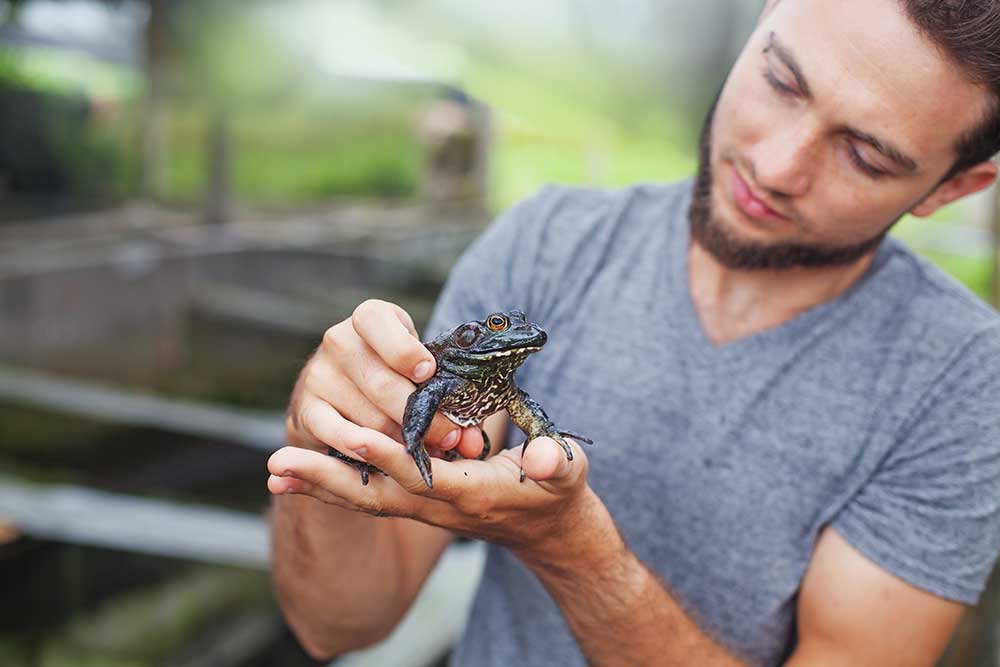Disclaimer: The information on our website is provided for general information purposes only. We make no representations or warranties of any kind, express or implied, about the completeness, accuracy, reliability, suitability or availability with respect to the website or the information contained on our website for any purpose. Any reliance on such information is therefore strictly at your own risk and we are not liable for any damages or losses arising out of or resulting from your reliance on any information contained on our website.
Herpetologists work within the branch of zoology that studies in amphibians and reptiles. They may in a research capacity, find themselves at a zoo or aquarium, or as an educator working at a college or university. Though they study amphibians or reptiles, they may also learn other skills (such as teaching or working with laboratory equipment).
Watch a video highlighting a herpetologist:
How to Become a Herpetologist
To become a herpetologist, you would get a bachelor’s degree in a life science, such as biology or zoology. From there, you would want to take courses or gain experience to expand your knowledge of amphibians and reptiles and specialize in this particular area of zoology. While in college, it would be important to learn as much about reptiles and amphibians as possible. It’s recommended to even volunteer or intern at a location so you gain experience working with them.
Often, herpetologists may hold a master’s degree as it may be required by employers. The Society for the Study of Amphibians and Reptiles (link opens in a new tab) has even more information if you’d like to continue your research on becoming a herpetologist.
Job Description of a Herpetologist
A herpetologist job description may vary based on the industry they work in. For instance, they could work at a college or university teaching students. They could also work in an aquarium or zoo and educate the public as well as tend to the amphibians and reptiles. They may also work for the government or medical field conducting biological research.
Herpetologists could find themselves doing a variety of tasks and they may find they need to learn an additional skill for a job. For instance, if in a medical role, a herpetologist would need to use lab equipment to collect and test samples from amphibians and reptiles.
Article Citations
Bureau of Labor Statistics, U.S. Department of Labor, Occupational Outlook Handbook, Zoologists and Wildlife Biologists.
National Center for O*NET Development. 19-1023.00. O*NET OnLine.

